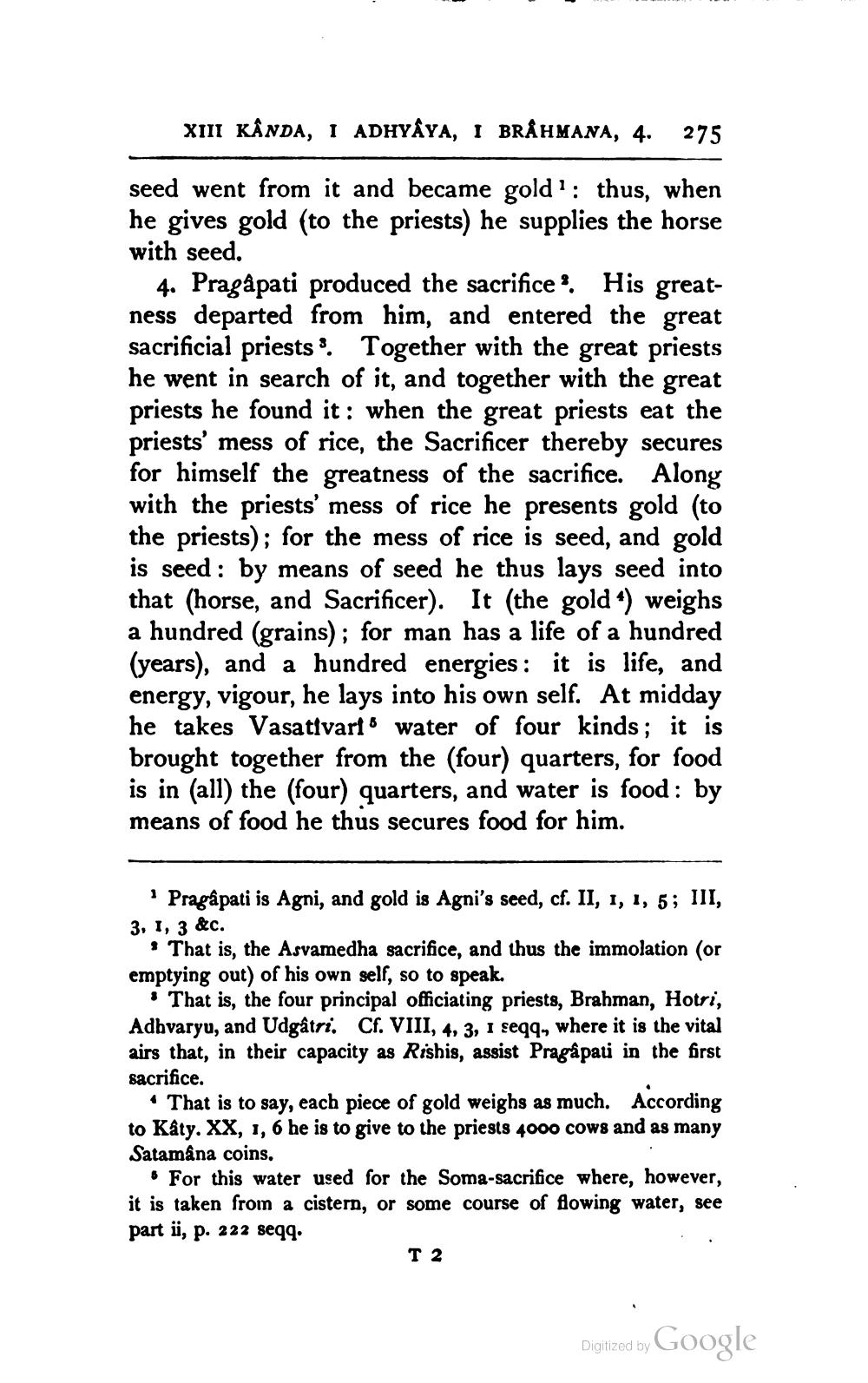________________
XIII KÂNDA, I ADHYÂYA, I BRÅHMANA, 4.
275
seed went from it and became gold': thus, when he gives gold (to the priests) he supplies the horse with seed.
4. Pragàpati produced the sacrifice. His greatness departed from him, and entered the great sacrificial priests. Together with the great priests he went in search of it, and together with the great priests he found it: when the great priests eat the priests' mess of rice, the Sacrificer thereby secures for himself the greatness of the sacrifice. Along with the priests' mess of rice he presents gold (to the priests); for the mess of rice is seed, and gold is seed: by means of seed he thus lays seed into that (horse, and Sacrificer). It (the gold 4) weighs a hundred (grains); for man has a life of a hundred (years), and a hundred energies: it is life, and energy, vigour, he lays into his own self. At midday he takes Vasativart water of four kinds; it is brought together from the (four) quarters, for food is in (all) the (four) quarters, and water is food: by means of food he thus secures food for him.
* Pragâpati is Agni, and gold is Agni's seed, cf. II, 1, 1, 5; III, 3, 1, 3 &c.
• That is, the Asvamedha sacrifice, and thus the immolation (or emptying out) of his own self, so to speak.
• That is, the four principal officiating priests, Brahman, Hotri, Adhvaryu, and Udgâtri. Cf. VIII, 4, 3, 1 segg, where it is the vital airs that, in their capacity as Rishis, assist Pragâ paui in the first sacrifice.
* That is to say, each piece of gold weighs as much. According to Katy. XX, 1, 6 he is to give to the priests 4000 cows and as many Satamâna coins.
. For this water used for the Soma-sacrifice where, however, it is taken from a cistern, or some course of flowing water, see part ii, p. 222 seqq.
T2
Digitized by Google




